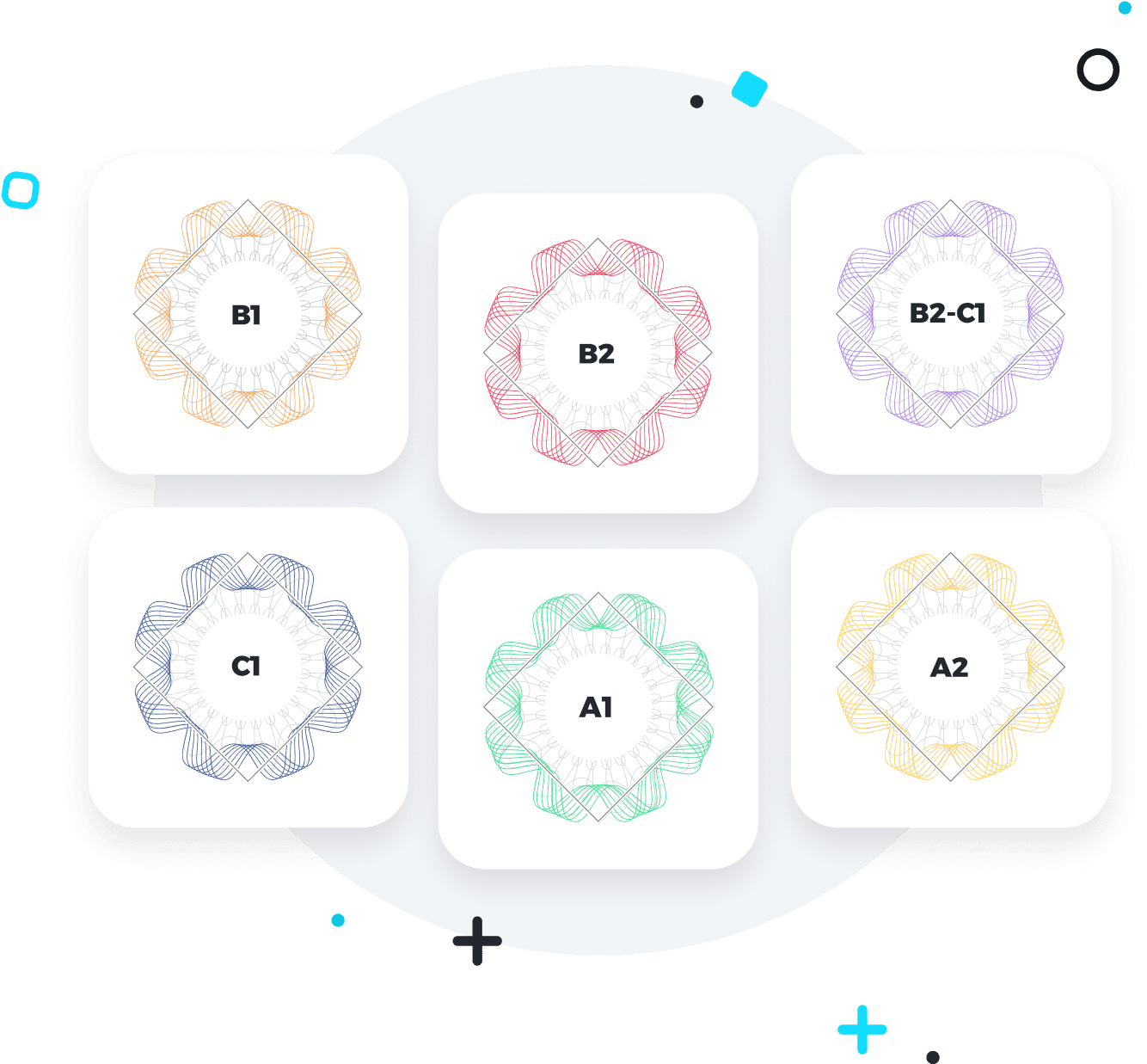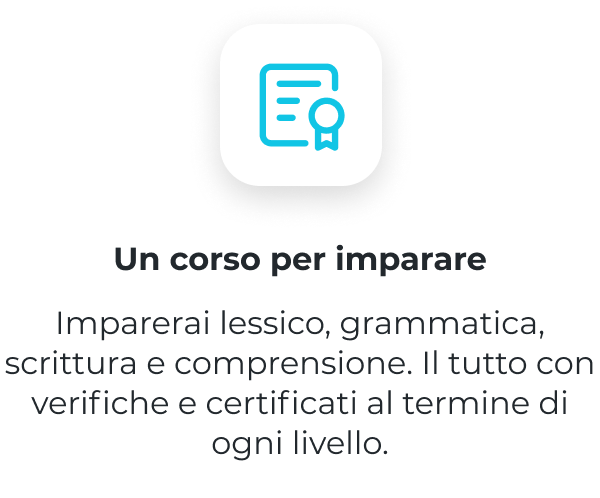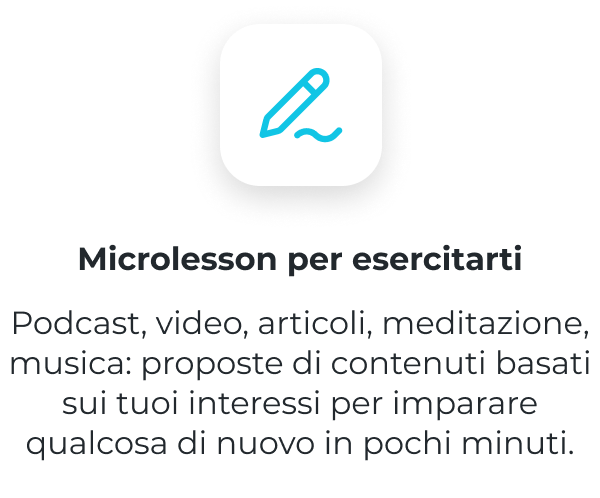Future perfect continuous in inglese
Scopri la chiave per utilizzare il future perfect progressive, con esempi ed esercizi chiari. Registrati gratis ad ABA English e goditi ogni giorno una nuova video lezione di grammatica gratuita
In questo articolo esamineremo la struttura del future perfect progressive in inglese, che cos’è e quando si usa. Esamineremo il tempo verbale per le frasi affermative, negative e interrogative, nonché le differenze esistenti con il future perfect.
Cos’è e quando si usa il future perfect continuous?
Il future perfect progressive, chiamato anche future perfect continuous, È il tempo verbale per il quale usiamo will have been. Si usa per narrare azioni che sono iniziate in un momento indeterminato e non si sono ancora concluse nel futuro di chi parla.
In altre parole, utilizziamo il future perfect continuous per annunciare azioni che avvengono nel futuro, ma non sono ancora iniziate al momento di annunciarle. Normalmente queste frasi sono accompagnate da congiunzioni di tempo.
Esempi:
- Eliza will have been married for five years by the time the baby is born. (Eliza sarà sposata da cinque anni quando nascerà il bambino.)
- George will have been working in the library for half his life when he gets his degree. (George avrà lavorato in biblioteca per metà della sua vita quando si laureerà.)
+30 MILIONI DI STUDENTI
Unisciti all’accademia digitale d’inglese più
grande del mondo e impara l’inglese
Struttura del future perfect progressive (will have been)
Per costruire frasi al future perfect continuous usiamo il verbo ausiliare modale will, seguito dalla costruzione have been, il verbo al gerundio per indicare la continuità dell’azione, e infine il complemento.
Diamo un’occhiata in dettaglio a tutto questo per le frasi affermative, negative e interrogative.
Future perfect continuous in frasi affermative
Per costruire frasi affermative al future perfect continuous, si indica il soggetto seguito da will have been, il verbo principale al gerundio e infine l’oggetto della frase.
La struttura grammaticale è quindi la seguente:
Soggetto + will + have been + verbo(ing) + complemento
Esempi:
- They will have been together for two years by the time he finishes college. (Saranno stati insieme per due anni quando finirà l’università.)
- My lawyer will have been fully informed when you arrive. (Il mio avvocato sarà stato completamente informato al tuo arrivo)
Future perfect continuous in frasi negative
Nel future perfect continuous, la forma negativa si ottiene mettendo al negativo l’ausiliare del futuro will (will not o won’t, in forma abbreviata).
La struttura delle frasi in questo tempo è la seguente:
Soggetto + will not (won’t) + have been + verbo (ing) + complemento
Esempi:
- She won’t have been studying until I come home. (Lei non si sarà messa a studiare finché non sarò tornato a casa.)
- They won’t have been dancing all night. (Non avranno ballato tutta la notte)
Future perfect continuous in frasi interrogative
Per costruire frasi interrogative usando il future perfect continuous, mettiamo il verbo ausiliare will davanti al soggetto della frase, e se è negativa, la negazione cade su questo ausiliare.
Vediamo quindi la struttura grammaticale:
Will /won’t + soggetto + have been + verbo (ing) + complemento + ?
Esempi:
- Will you have been playing long when I arrive? (Ti sarai esercitato da molto tempo quando arriverò?)
- Won’t the TV have been working by then? (La TV non funzionerà per allora?)
Sai già qual è il tuo livello d’inglese?
Fai subito un test
Registrati nella nostra pagina e accedi gratuitamente al test di livello. Scoprirai il tuo punto di partenza in pochi minuti e potrai continuare ad avanzare con il corso.

Differenza tra future perfect continuous e future perfect simple
A prima vista potrebbe esserci un po’ di confusione per distinguere quando usare il future perfect continuous e il future perfect simple.
Tuttavia mentre il primo parla di azioni che iniziano in un momento nel futuro e si svolgono quando gli eventi vengono narrati, il future perfect ci serve per annunciare eventi che hanno la loro origine nel futuro, ma che saranno già finiti per chi parla in un futuro posteriore a quello iniziale.
Vediamolo confrontando le strutture grammaticali nella seguente tabella:
| Tempo Verbale | Struttura | Esempio |
| Future perfect continuous | Soggetto + will + have been + verbo(ing) + complemento | When you cut the cake, I will have been filming. (Quando taglierai la torta, starò filmando) |
| Future perfect simple | Soggetto + will + have + verbo al passato + complemento | When you cut the cake, I will have filmed. (Quando taglierai la torta, avrò filmato) |
Frasi al future perfect progressive
- By this time tomorrow, I will have been leaving. (Domani a quest’ora starò partendo.)
- Next month, she will have been painting for 5 years. (Il mese prossimo saranno 5 anni che dipinge.)
- By the end of this pregnancy, Shania won’t have been gaining enough weight. (Entro la fine di questa gravidanza, Shania non avrà guadagnato abbastanza peso)
- In December, he will not have been building his house for even a year. (A dicembre non starai costruendo la tua casa nemmeno da un anno.)
- How long will they have been knocking at the door? (Da quanto tempo staranno bussando alla porta?)
- Will you have been leaving when my parents come? (Te ne starai andando quando arriveranno i miei genitori?)
Esercizi per praticare il future perfect progressive
Esercizi in frasi affermative
Mettiamo in pratica quanto visto finora con il future perfect continuous. In questa sezione, riempi gli spazi vuoti con la forma corretta del verbo tra parentesi per formare le frasi al future perfect continuous:
- The students __________ (present) the exam when the school bus arrives.
- The candidate __________ (expose) his proposal when the town assembly begins by this time tomorrow.
- In June next year, I _________ (live) in this town for twelve years.
- I ________ (celebrate) my fifty-year anniversary when my daughter returns.
- They __________ (audit) my company for two weeks when I come back from vacation.
Risposte:
- will have been presenting
- will have been exposing
- will have been living
- will have been celebrating
- will have been auditing
Esercizi in frasi negative
Completa le frasi negative al future perfect continuous usando il verbo tra parentesi:
- When we arrive at the airport, the plane ________ (leave).
- When Sonia graduates from the university, she _________ (work) in the hospital for a long time.
- I ___________ (travel) around Europe for three months by the end of the summer.
- Daniel __________ (retire) by this time next year.
- The two families ________ (reconcile) with dessert at the engagement party.
Risposte:
- will not (won’t) have been leaving.
- will not (won’t) have been working.
- will not (won’t) have been traveling.
- will not (won’t) have been retiring.
- will not (won’t) have been reconciling.
Esercizi in frasi interrogative
Forma frasi interrogative al future perfect continuous utilizzando le parole chiave sottostanti:
- The children/attend/school when the appointment is scheduled.
- Paul/dance/with his partner for enough time by the time the contest begins.
- The protesters/clear/the roads by nightfall.
- The Johnssons/live/in the same neighborhood next fall.
- Vivian and Andrew/not speak/to each other at the party.
Risposte:
- Will the children have been attending school when the appointment is scheduled?
- Will Paul have been dancing with his partner for enough time when the contest begins?
- Will the protesters have been clearing the roads by nightfall?
- Will the Johnssons have been living in the same neighborhood next fall?
- Will Vivian and Andrew not have been speaking to each other at the party?
Altri link utili


























